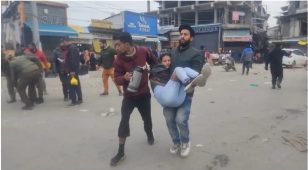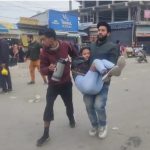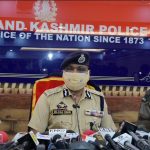A Dogra From Jammu Deplores The “Slow Death Of Our Basic And Fundamental Humanity” caravanmagazine.in
Narendra Modi-led government removed the special status to Jammu and Kashmir under Article 370 of the Constitution. The government downgraded the state into two union territories, Jammu and Kashmir, and Ladakh. It then enforced a communications blockade in the region, which is still ongoing. The government has since claimed that the situation on the ground is peaceful and that people of Jammu, Kashmir, and Ladakh have all welcomed the move. News reports from the region, however, contradict this claim.
In “State Subjects,” The Caravan is featuring a collection of voices from various parts of the erstwhile state. Surbhi Kesar, a doctoral student based in Delhi and Bengaluru, discusses how the Dogras of Jammu came to have an anti-Kashmir view.
As Hindu Dogras from the Jammu region of the erstwhile state of Jammu and Kashmir, we were raised to view Kashmir as our land but Kashmiri Muslims as the others and the occupants of what was rightfully ours—the land and resources of the area called Kashmir. We were implicitly taught to believe that Kashmir, Kashmiri Muslims and Article 370 of the Constitution were to be blamed for the lack of economic opportunities and almost all the social schisms in the state. This narrative persisted even though the state was one of the highest-ranked in terms of per-capita income and human development indicators. It was easier to fuel hate as the constant fear of the other was closer home.
This shaped the subjectivity of many of us who were raised in Jammu. Admittedly, the communalisation of the Kashmiri people’s demand for their political right to self-determination made it easier to mold the sentiments of the people of Jammu into an anti-Kashmir stance. The subsequent tragedy that unfolded in the 1990s—communal violence against the Kashmiri Pandit community in the region peaked during the decade— compounded this further. To a certain extent, this communalisation also provided legitimacy to the center’s increased militarization of Kashmir. The resulting anti-Kashmiri Muslim narrative made not just us, but the whole country, view the victims of this lack of political voice and communalisation as a threat to the sovereignty of the nation.











Leave Your Comment